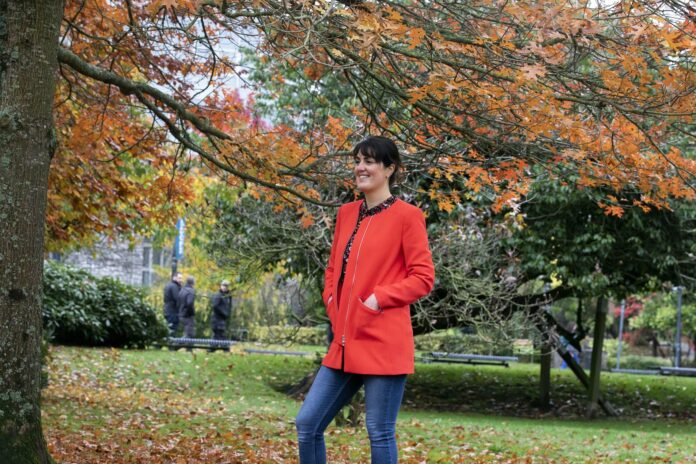A SCARIFF-born scientist has taken a prestigious funding award, for the second time, and has described the funding grant as “a dream come true”.
Dr Pauline Scanlan has been awarded a prestigious Royal Society-Science Foundation Ireland (SFI) University Research Fellowship, which recognises her outstanding early career achievements, competing alongside the best for her research on microbial activity in the human gut.
Dr Scanlan, who went to Scariff National School and then Scarriff Community College, is a role model and ambassador for careers in STEM. She currently participates in many educational and public engagement activities such as hosting transition year and other students in their labs, primary school visits (which happened virtually in 2020). Her public activities involve her giving career talks, acting as mentors, providing guidance to students for BT Young Scientist & Technology Exhibition (BTYSE) projects but also through her day-to-day interactions with students, and other trainee researchers. She is a firm believer in the adage, ‘If you can’t see it, you can’t be it’.
The RS-SFI scheme gives early career researchers a generous timeframe to develop their own research field and build their careers at a time when many are also starting their families. This is especially pertinent for female researchers. According to a US study, more than 40% of women with full-time jobs in science leave the sector or choose part time work after having their first child. Only 23% of fathers make similar changes.
Dr Scanlan studies the ecology and evolution of microbial populations in the human gut. Although we know that the gut microbiota plays a pivotal role in human health and disease we know very little about how members of this community interact and evolve over time, and in turn, how microbial evolution within the human body affects host health. More specifically, Dr Scanlan’s fellowship is focused on understanding how bacteriophages (viruses that kill bacteria) shape the evolution of their bacterial hosts and aims to provide a fundamental insight into the origins of microbial diversity in the human gut.
“The grant has provided me with complete intellectual freedom and independence to pursue my research goals,” Dr Scanlan said. “It is a dream come through for me. Most grants for early stage researchers are for two or three years and it often takes considerably longer than this to collect samples and generate data suitable for publication. The prestige associated with the fellowship award helps with CV building and was key to me securing a permanent lectureship that I can take up in the School of Microbiology at University College Cork (UCC) after my fellowship.
“The Royal Society pays special attention to individual researchers and their careers; they have invested in us and thus they want to see us do well and are willing to support us any way they can. Whether this is facilitating maternity leave, flexible working hours or working part-time when your family are young, the Royal Society ensures fellow’s host institutions provide the appropriate support and infrastructure for early career researchers to achieve work-life balance.”
Professor Mark Ferguson, Director General of Science Foundation Ireland (SFI) and Chief Scientific Adviser to the Government of Ireland, welcomed the appointment. “I am delighted to congratulate Dr Scanlan on her prestigious Royal Society-SFI University Research Fellowship, which recognises her outstanding early career achievements, competing alongside the best in the world,” he said. “Science Foundation Ireland is dedicated to developing a world-leading, open and diverse research culture in Ireland to ensure that outstanding talent is recognised. Gender diversity is a key element of successful research and innovation. We are delighted to continue to support this international programme, and I wish Dr Scanlan every success in her career.”

